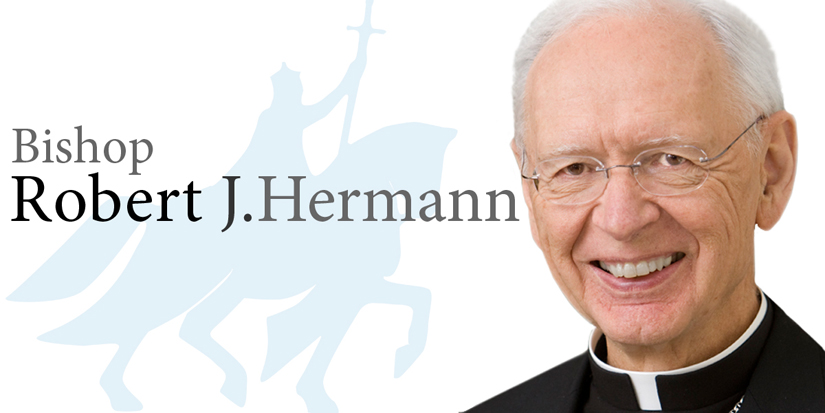 The readings for the Third Sunday of Lent focus on God’s episodic presence and yet His seemingly mysterious absence in our lives. “If only God would make clear what He wants of me?”
The readings for the Third Sunday of Lent focus on God’s episodic presence and yet His seemingly mysterious absence in our lives. “If only God would make clear what He wants of me?”
The problem isn’t a lack of clarity on God’s part, but rather on our lack of remembrance of what He repeatedly tells us. The four Gospels speak concretely of what God wants for our lives, but we conveniently tend to forget what God asks of us. What language could be more forceful or more direct than the crucifixion, and yet too often the crucifixion is an inconvenient memory, which we would rather put in the back of our mind and not let it interfere with our daily life.
In the first reading, God calls upon the Chosen People to exercise their memory of how they became the Chosen People. They are reminded that when the Israelites were enslaved in Egypt, God revealed Himself to Moses whom He chose to be His spokesman in leading them out of slavery into the Promised Land.
God’s presence is mysterious in the flaming bush, and He awakens Moses’ curiosity. When Moses asks His name, He replies: “I AM.” Armed with this new name, Moses goes back to Egypt and engages Pharaoh, until Pharaoh finally relents.
To the Israelites, the burning bush was for them what the crucifixion is for us, a sign of God’s compassionate interference in our sinful lives.
We might pause and ask ourselves: “Are we happy with God’s interference in our lives?” If we are honest, we will probably say “no.” This reminds me of a person who came to me recently who wanted to become free from Satan’s occult bondage, but didn’t want to get involved with Jesus. I told this person: “Good luck! Come back to us when you need us.”
We are indeed blessed every time God interferes in our lives. Those interventions, or interceptions, are meant to invite us to exercise our memory: “Where am I going? What is the purpose of my life?”
St. Paul invites the Corinthians to exercise their memory of where their faith came from. He alludes to Moses, saying, “… our ancestors were all under the cloud and all passed through the sea, and all of them were baptized into Moses in the cloud and in the sea.”
“All ate the same spiritual food, and all drank the same spiritual drink, for they drank from a spiritual rock that followed them, and the rock was Christ. Yet God was not pleased with most of them, for they were struck down in the desert.”
The Word of God, the Son of God, spoke to Moses from the fiery bush. The Word of God led them through the Red Sea, fed them on manna and quail, and watered them from the rock in the desert.
“These things happened as examples for us, so that we might not desire evil things, as they did.”
When God manifests Himself to us, we are to sit up and take note. God is an all-compassionate God, so that when hardships come our way, it isn’t that He doesn’t love us but that these hardships are gifts to us to awaken us from our lethargy, and to encourage us to take a fresh look at our lives.
Are we totally focused only on what we see, hear and touch, or are we focused on the Creator who has a plan for our lives and won’t let us wander from His plan?
In the Gospel, the Word Made Flesh makes it crystal clear that we ought to look at the meaning of the events that happen around us. Those who were killed when the tower of Siloam fell upon them weren’t guiltier than the rest of the people. “I tell you, if you do not repent, you will all perish as they did!”
He follows this up with the parable of the fig tree. The farmer graciously lets it live for another year, hoping it will bear fruit. That is why you and I are still alive. God in His mercy is inviting us to exercise our memory of His graciousness.
May I suggest a very powerful course of action? Repentance is difficult because we are unaware of our need for it. However, God can help our memory. Simply embrace every hardship and every difficulty that comes along as an opportunity to repent of past and present sins.
This begins a wonderful purification process. When we can simply embrace the grace to welcome sufferings and hardships, reminding us that there is more to life than simply indulging in what we can see, touch, and control, then we can focus more clearly on where we are going when God calls us from this world.
Meaning in our lives is everything, and suffering can help us focus on who calls us, and where it is that He is leading us. God prepares us to participate in the inner life of the Trinity for all eternity. To the extent that we embrace sufferings as a way of leading us to repentance, suffering will become an incredible source of joy even in this world. Because of the joy that lay before Him, Christ willingly embraced His passion.
May I ask for the grace to willingly embrace whatever sufferings come my way as a grace that leads me to a deeper repentance. Repentance will bring me great joy not only to my family here on earth, but also to my future family in heaven.